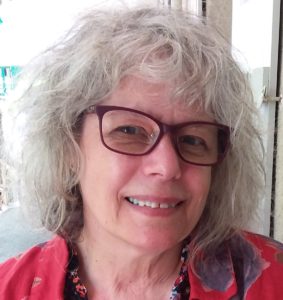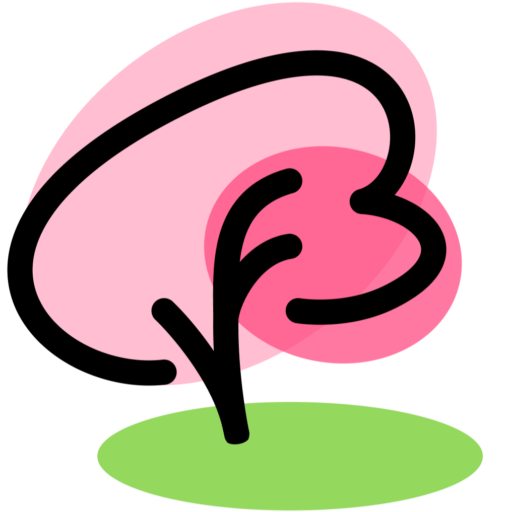2022 Haiku Invitational
What a pleasure it was for us to read and rate the haiku submitted for the 2022 Vancouver Cherry Blossom Festival Haiku Invitational. This year we had 1,421 haiku submitted in six categories, including Vancouver, British Columbia, Canada, United States, International, and Youth. Compiling our ratings, it was easy to see that we agreed on the top 10 to 15 haiku from each category. We then met by Zoom to discuss each of these together to determine which haiku was best and which haiku deserved Sakura Awards for each category. We then discussed haiku deserving honourable mentions. We were especially pleased to see fresh perspectives, heartfelt moments, interesting use of images, and evocative lyrical expression. We hope you enjoy this year’s award-winning haiku from the 2022 Vancouver Cherry Blossom Festival Haiku Invitational.
The following comments on each poem are by 2022 Haiku Invitational judges: Maxianne Berger, Dr. Randy Brooks, and Jennifer Hambrick.
Vancouver:
night breeze . . .
cherry petals fill
the big dipper
P. H. Fischer
Vancouver, British Columbia
What could be more magical than a night stroll under a canopy of flowering cherry trees? Reading this haiku, we are wrapped in a light spring breeze that carries the perfume of cherry blossoms to the heavens. There the romance of night and burgeoning nature meets the cosmos, as cherry petals flutter from their branches and take their place among the stars. In a single sparkling package, this poem joins earth with heaven in imagery that conveys the wonder of sakura amid the spatial and temporal vastness of the universe. The poem’s tremendous scope, fresh sensory details, and effortless expression place it squarely at the top of this category’s entries. (JH)
British Columbia:
a painting
in a puddle . . .
cherry blossoms
elehna de sousa
Salt Spring Island, British Columbia
Every reader of this haiku will enjoy a different visual in their mind’s eye. A puddle is as beautiful as what it reflects, but depending on what it is, flotsam, too, can lend its aesthetic nature. The uneven effects of surface tension and ripples then add their own blurred edges, distortions, and reorganization. The overall quality is reminiscent of impressionism with a fleck of collage here and there. Fallen blossoms, reflected blossoms, or a combination? A scene painted by an artist. And by a haiku poet. (MB)
Canada:
falling blossoms
a toddler picks
herself up
Sue Colpitts
Peterborough, Ontario
What joy to visit the cherry blossoms with a little one and to see the sight from a child’s perspective. We can imagine the wonder in this child’s eyes looking up at the blossoms. With a little breeze, the blossoms swirl down on us. The toddler tries another new trick—spinning with arms out. We want to spin too! How easy it is to become dizzy in this participation in the movement of the falling blossoms. However, there is more to this haiku than the immediate joy of the moment. This haiku invites us to celebrate the growth, the blossoming, of the toddler. Perhaps this little one has just learned to walk? But it’s not so easy to walk in the grass. And has this child ever tried spinning on its own? Is the child afraid of falling or has the child learned that falling down is just part of learning? While the haiku starts with the beauty of falling blossoms, it concludes with a celebration of the growing independence of a child fully capable of getting back up. “I do it on my own!” (RB)
United States:
cherry blossoms . . .
the painter
sets down his brush
Mary McCormack
Urbana, Illinois
What a wonderful haiku celebrating the beauty of creative works of nature and humans. This is a straightforward haiku on one level. The painter sets down his brush to admire the cherry blossoms, to rest long enough from his work to fully breathe in and enjoy being with the cherry blossoms. The haiku simply notes that he is a painter. Perhaps he is a house painter trying to restore the beauty of a house. Or perhaps he is a landscape painter trying to convey on canvas the beauty and depth, the shades and the colors, and movement of the cherry blossoms. By “setting down his brush” he is connecting in a more immediate way. (RB)
International:
cherry blossoms
all other words
below
Srinivasa Rao Sambangi
Hyderabad, India
This poem conveys a feeling of mindfulness and mindlessness simultaneously. The observer experiences a moment when one single experience takes up the entirety of awareness, to the point where consciousness itself is subsumed by it. “Cherry blossoms” are verbal symbols of one such experience. Other verbal symbols are subliminal, below a threshold of awareness. Only after emerging from this rapture can we become aware of having gone through it. The poet has succeeded in sharing what might easily be a wordless experience with both clarity and economy. (MB)
Youth:
blossoms whisper
my secret carried
through the wind
Emily Edwards, Age 14
Christchurch, New Zealand
We have so much to love about this poem: the magic of its whispering blossoms, the wind gently personified as the messenger of the poetic speaker’s secret. And just as the spring wind teases our coats, our scarves, and the hair on our heads, the teenaged author of this poem teases us with that precious secret—what is it about? A budding romance, maybe, to go with those new cherry blossoms? At the heart of the intrigue is the alluring suggestion that we, the readers, are eavesdropping on a private conversation between the poem’s speaker and the tree. The layers of magic and mystery in this poem remind us that we humans are part of nature, and that the differences between us and those whispering blossoms are few and petal-thin. (JH)
2022 Haiku Invitational Judge Bios:
 | Maxianne Berger, a Montreal poet, is active in both French and English writing communities. With Mike Montreuil she coedited Cirrus: tankas de nos jours through twelve issues. She coordinates book reviews in both languages for Haiku Canada. A literary translator, she has provided English versions of poems, presentations, essays, and books for several Haïjins Québécois/es. Her own tanka collection is bilingual: Un Renard Roux / A Red Fox (Petits Nuages, 2014). A constraint lover, through erasure of Melville’s Moby Dick she produced Winnows (Nietzsche’s Brolly, 2016), which won third place in the Haiku Society of America’s Merit Book Awards. Her new challenge is photo haiga. |
 | Dr. Randy Brooks is the Dean of Arts and Sciences at Millikin University in Decatur, Illinois, where he teaches courses on haikai arts and book publishing. He and his wife, Shirley Brooks, are publishers of Brooks Books, focusing on haiku, and coeditors of Mayfly haiku magazine. His most recent books include Walking the Fence: Selected Tanka and The Art of Reading and Writing Haiku: A Reader Response Approach. |
 | Jennifer Hambrick is the author of In the High Weeds, winner of the Stevens Manuscript Award of the National Federation of State Poetry Societies, Unscathed (NightBallet Press), and the haibun book Joyride (Red Moon Press). She has been featured in American Life in Poetry, and has received numerous awards, including first prize in the Haiku Society of America’s 2018 haibun contest, the 2020 Sheila-Na-Gig Press Poetry Prize, and the Bronze Prize in the 2021 Ito En Art of Haiku competition. She has also received multiple Pushcart Prize and Best of the Net nominations. Jennifer lives in Columbus, Ohio, and her website is jenniferhambrick.com. |
Haiku Invitational ↗
Return to the main page of the Haiku Invitational.
Meet Our 2022 Winners ↗
Meet our 2022 Haiku Invitational winners.
2022 Commentary ↗
Read the judges’ 2022 commentary for inspiration for your own haiku.
2023 Haiku Exhibition↗
Celebrate winning haiku with commissioned pieces by Musqueam, Squamish, and Tsleil-Waututh artists.
More Haiku ↗
View additional categories of 2022 Sakura Awards and Honourable Mentions.
Programs subject to change. All event titles are protected trademarks of the Vancouver Cherry Blossom Festival.

